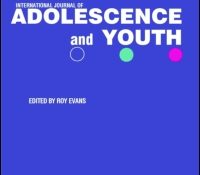eric.ed.gov har udgivet: Questioning techniques have historically been considered the measurement by which teachers challenge and gauge student learning. Much has been said about questioning strategies used by teachers; yet little is known about the strategies used by pre-service teachers, especially those that are working with English language learners. This study presents findings from a qualitative study that explored what types of questions pre-service teachers use and their reflections on the use of such strategies. Eight bilingual/ESL pre-service teachers in South Texas were videotaped during a math and a language arts lesson, attended focus groups, and participated in an exit interview. The findings revealed the type of questions used by the participants, how they made sense of their teaching, and how accountability measures influenced their teaching. This research recommends education… Continue Reading →
Like this:
Like Loading...
tandfonline.com har udgivet en rapport under søgningen “Teacher Education Mathematics”: Abstract Abstract This study examined perceptions of pre-service teachers at the university of Jordan towards Developmentally Appropriate Practices DAP. It also examined the influence of the demographic characteristics on their perceptions of DAP or DIP. A total of 189 pre-service teachers completed a survey questionnaire describing their demographic information and perceptions regarding their DAP using the TBS scale. Results indicated that pre-service teachers have high perception of DAP on the TBS scale. In addition, there was a statistical significance in DAP due to pre-service teachers’ practicum experience in favor to students with less experience. On the other hand, there was no statistical significance in DAP due to pre-service teachers’ age, college year, GPA nor academic major. Final result indicated that… Continue Reading →
Like this:
Like Loading...

tandfonline.com har udgivet en rapport under søgningen “Teacher Education Mathematics”: Abstract Abstract The statistical problem-solving process is key to the statistics curriculum at the school level, post-secondary, and in statistical practice. The process has four main components: formulate questions, collect data, analyze data, and interpret results. The Pre-K-12 Guidelines for Assessment and Instruction in Statistics Education (GAISE) emphasizes the importance of distinguishing between a question that anticipates a deterministic answer and a question that anticipates an answer based on data that will vary, referred to as a statistical question. This article expands upon the Pre-K-12 GAISE distinction of a statistical question by addressing and identifying the different types of statistical questions used across the four components of the statistical problem-solving process and the importance of interrogating these different statistical question… Continue Reading →
Like this:
Like Loading...

